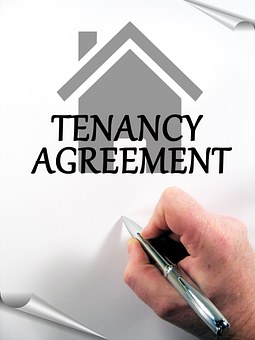
Over the years we have met hundreds of tenants and landlords, many of whom have become good friends along the way. On the odd occasion we do come across a ‘difficult’ tenant, however, our experience has taught us how to handle these situations. For the inexperienced landlord, though, it can be stressful, exhausting and even expensive! To ensure you’re not caught out by difficult tenants, have a read of our top tips.
Be professional
When dealing with your tenants it’s important to be professional and friendly even if they aren’t behaving the same way. You need to have good communication between you, so disputes can be dealt with quickly. Remember you have a tenancy agreement, so your tenant is obliged to follow this.
Be aware
Visit your property regularly to keep track of maintenance issues. If you plan to visit the property, make sure you give your tenants at least 24 hours’ notice.
Keep records
Make sure you document everything. Keep records of financial transactions, maintenance issues, any emails or phone calls you have received from the tenant. Make sure all requests are in writing, so if the problem is not resolved and further action needs to be taken, you can show your attempts to resolve the problem.
Get covered
Take out the right insurance policy for your property. Make sure you have landlord insurance before renting out the property, this could help pay towards future damage your tenants may cause. It could also help you if tenants are unable to pay the rent.
Maintain good relations
Make sure you have mutual respect with your tenant. If repairs are needed on the property, listen to your tenant and quickly fix the problem. Ensure professional repairs are carried out on the property, to reduce future disagreements. It is advised that you have a suitable agreement at the beginning of the lease regarding repairs on the property.
Know the law
Make sure you know your rights and responsibilities as a landlord. You should also have a clear understanding of tenant rights and eviction procedures. See the Government website on renting out your property.
Resolving problems
If the tenant has caused damage to your property write them a polite, written warning, this will usually achieve a resolution. If your tenant has violated the law, it would be advisable to get the police involved and they will issue a fine or warning. However, if your tenant leaves their rent unpaid for over 14 days, you have the right to repossess the property, if you need assistance, contact a tenant eviction service.
Avoiding problem tenants
Before you take on a new tenant, they should go through a screening process. You should check their employment history, credit history, and references. You may also want to get a background check of your tenant, by contacting a firm to find out private information, including criminal records.
Problems
Can’t pay the rent
If your tenant is late with the rent, the first thing to do is to ask why. There could be a number of reasons why tenants could withhold rent from their landlord, for example, unemployment, cash flow problems, and maintenance disputes.
If they are having cash flow problems, you could arrange for them to make weekly partial payments. If there is no other option, you should give them the option to voluntarily leave, otherwise, you may have to take the matter to court.
Damage to the property
The tenancy agreement should outline whose responsibility it is to fix damage on certain areas of the property. You should also arrange to visit the property half way through the tenancy to check for damage to the property.
Anti-social behaviour
If a neighbour has complained of noise disturbance, you should ask your tenant to talk to their neighbour to meet an agreement. If they refuse, you should refer to your tenancy agreement. If the issue is not sorted, the neighbour could resort to calling the police, which could lead to an anti-social behaviour order for your tenants.
Subletting
Your tenant could have a friend staying for a few days or checking up on the property while they’re away. But, if you suspect your tenant is subletting a room in the property without permission, you should contact them and refer to your tenancy agreement.
Eviction
In extreme cases, this may be the only option, if so contact the ‘National Landlords Association’ for advice. Make sure you keep a log of problem tenants and disputes, to protect yourself in the future. This will be more likely to hold up in court.
In summary, there are many actions you can take to protect yourself against difficult tenants. The most effective solution, however, is to appoint a reputable agency to manage the relationship for you. If you would like further information on this topic please feel free to call me on 020 866 5666 or email clive@paigeandpetrook.co.uk. You can also check out our website.